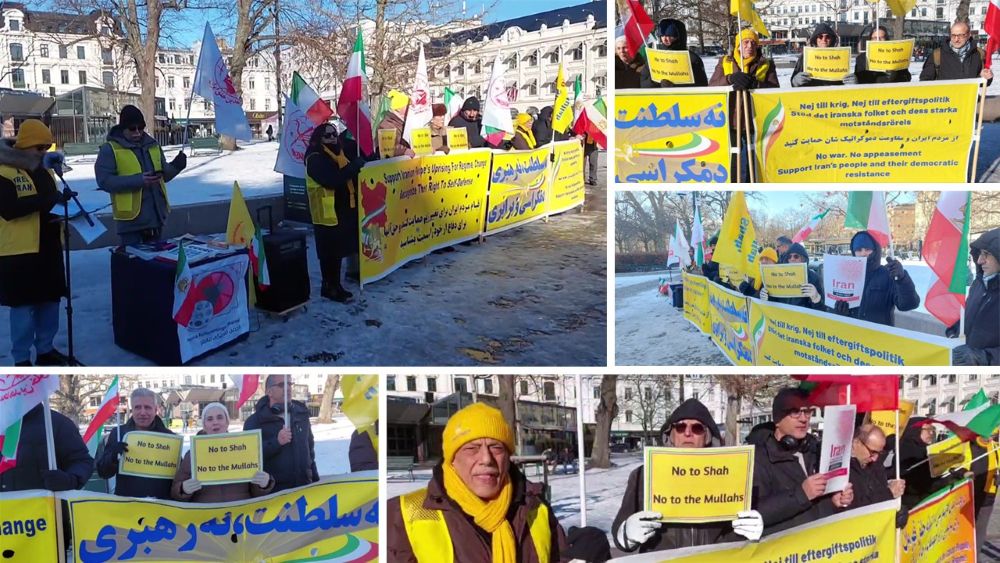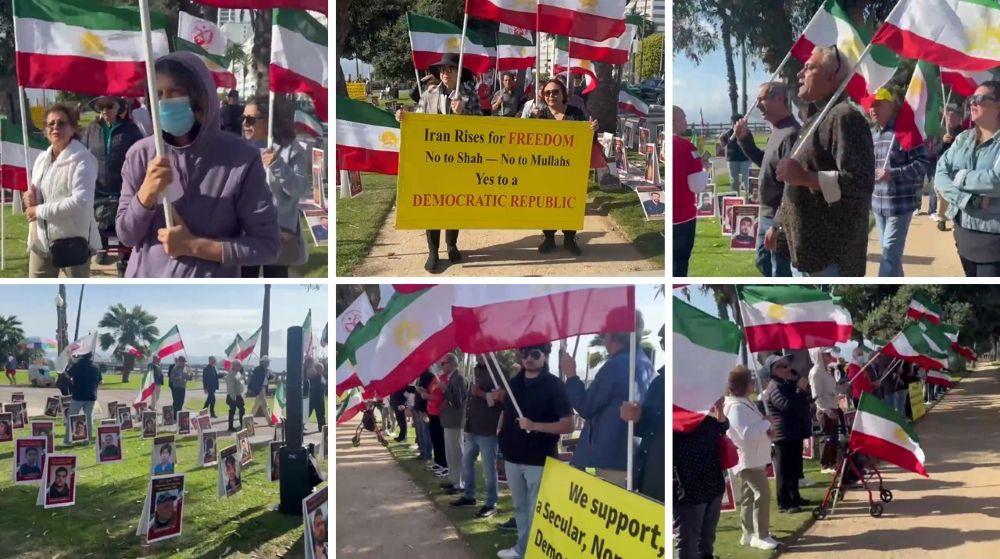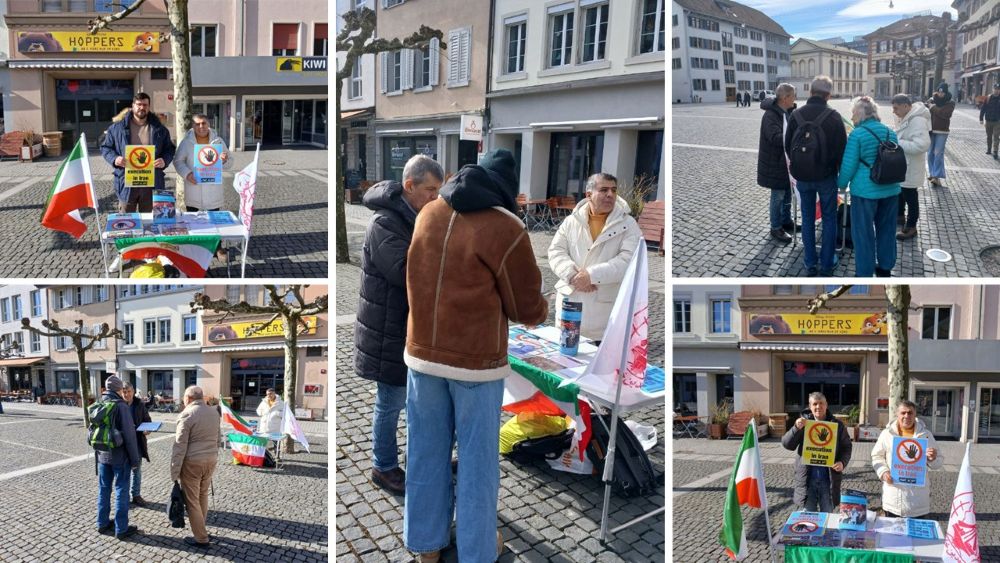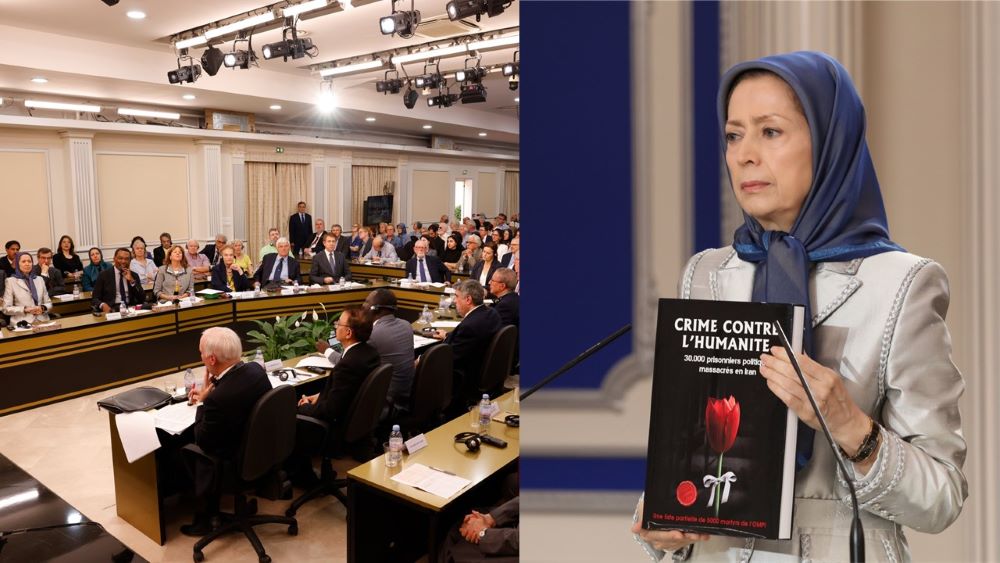
On August 24, 2024, an international conference titled “Crimes Against Humanity: Time for Accountability and an End to Impunity” brought together former UN officials, prominent legal experts, and human rights advocates to emphasize the urgent need for justice for the victims of the 1988 massacre in Iran. The event, which included remarks from Maryam Rajavi, President-elect of the National Council of Resistance of Iran(NCRI), focused on ongoing efforts to hold Iranian regime officials accountable for both past and current atrocities.
In her speech, Mrs. Maryam Rajavi highlighted the continuing human rights abuses in Iran and called for international action. She contrasted the ideals of the Universal Declaration of Human Rights with the oppressive actions of the Iranian regime.
The full text of Mrs. Maryam Rajavi’s speech is as follows:
Maryam Rajavi: The Urgent Need to Hold Iranian Regime Leaders Accountable for Executions and Massacres and End Their Impunity
Distinguished Guests,
Esteemed Jurists and Scholars,
Today’s conference is convened to address the grave issue of the systematic violation of human rights in Iran.
In the wake of World War II, when the Universal Declaration of Human Rights was drafted, its language was profoundly shaped by the “spirit of humanity”—a spirit that had reached a state of rebellion against the unprecedented catastrophe.
The Universal Declaration of Human Rights “heralded the advent of a world in which human beings are free in expression and belief, and free from fear and want, which is proclaimed as the highest aspiration of humanity.” Today, the words of that historic document remain unchanged, yet they have practically strayed from their original essence, as they are unaffected by the pain and suffering of the millions of people who have been tortured or executed.
Today, in our country, a regime rules, whose governance is predicated upon the suppression of human rights, and whose survival is secured and guaranteed by the killing of people. Against this regime, a prolonged and arduous resistance persists aimed at restoring human rights. We proudly consider ourselves champions of freedom and human rights.
Forty-five Years of Executions and Massacres by the Iranian Regime
Dear friends,
In the past month, the Velayat-e Faqih regime, under its new administration, has executed at least 126 prisoners across various cities.
This is part of a broader wave of executions this year, where the mullahs have exercised unrestrained brutality. These heinous crimes reflect the regime’s profound fear of a rebellious society poised for uprising.
However, this is not merely the story of today. Last year alone, 864 individuals were executed. During the nationwide uprisings in 2019, at least 1,500 people and in the nationwide uprising in 2022, no fewer than 750 people were shot to death by the Revolutionary Guards.
This narrative unfolds a grim saga of executions and massacres that have shrouded the people of Iran for the past 45 years. It is a tale that touches every corner of society, from adherents of diverse faiths to the oppressed ethnicities of the Baluch, Kurds, and Arabs.
In his latest investigative report, Professor Javaid Rehman described the executions of 1981 and 1982, and the 1988 massacre, as “atrocity crimes,” epitomizing clear cases of genocide and ongoing crimes against humanity. He emphasized that the Supreme Leader and many current regime officials bear direct responsibility for these atrocities.
In the past month, the Velayat-e Faqih regime, under its new administration, has executed at least 126 prisoners across various cities. This is part of a broader wave of executions this year, where the mullahs have exercised unrestrained brutality. These heinous crimes reflect… pic.twitter.com/gp0ay0gHBK
— Maryam Rajavi (@Maryam_Rajavi) August 24, 2024
The Regime’s Warmongering is an Extension of Human Rights Violations in Iran
The reality is that to this day, an extensive compilation of documents and evidence detailing repression and suppression in Iran have been published. They include the book cataloging 20,000 martyrs; a book containing the names of over 5,000 PMOI victims of the 1988 massacre; a collection compiled on the massacres in the prisons of various Iranian counties; the testimonies and memoirs of political prisoners; dozens of periodic reports on human rights abuses in Iran by UN Special Rapporteurs, and thousands of video clips documenting the suppression and slaughter of protesters.
Additionally, there are numerous reports on the torture and abuse of political prisoners, particularly female detainees, as well as explicit admissions by many of the regime’s highest officials who have either endorsed or called for these crimes. The sheer numbers and volume of this evidence are truly astounding.
The United Nations has adopted 70 resolutions condemning human rights violations by the regime to date. Unfortunately, the organization, its relevant bodies, and its member states have not adhered to the true obligations of these resolutions and have shown no real reaction, except for issuing occasional, clichéd statements, which only reassures the regime that it faces no international pushback.
In instances where Western courts have convicted the regime’s murderous and terrorist operatives under national laws or universal jurisdiction, these governments have, regrettably, released those murderers and terrorists from their prisons and sent them back to the regime. We saw examples of this earlier this year in Sweden and last year in Belgium. Truly, is this not a mockery of the rule of law, democracy, and justice?
Those who overlook the grave human rights catastrophe in Iran forget that the destruction of human rights on such a scale is no longer a domestic matter. This is a part of the clerics’ brutal war for survival, which extends into warmongering in the Middle East and terrorism around the world. If this regime and its leaders had not enjoyed impunity for their crimes within Iran, they would never have been able to wreak such devastation in Iraq, Syria, Yemen, and Lebanon, nor would they have been able to initiate this destructive war in the region last October.
The 1988 Massacre: An Unprecedented Atrocity in Human Rights Violations
Dear Friends,
One of the most horrific instances of human rights violations by the Iranian regime is the massacre of 30,000 political prisoners in 1988, with 90% of the victims being members of the PMOI. The massacre started with the PMOI prisoners but expanded to include Kurd and Marxist prisoners. The justice-seeking movement will continue its efforts, including the documentation of other victims’ names.
Today, August 24, marks a significant date. On this date in 1988, nearly a month after the start of the massacre, Massoud Rajavi, the leader of the Iranian Resistance, informed the world of a major massacre occurring in Khomeini’s prisons through a telegram to the Secretary-General of the United Nations.
In this telegram, he disclosed Khomeini’s handwritten decree authorizing the execution of political prisoners and the extensive political arrests of over 10,000 individuals.
He wrote that the mass executions had begun, targeting many prisoners who had already completed their sentences. Until then, no one knew about the decree to massacre the political prisoners. Hossein-Ali Montazeri, the deposed successor to Khomeini, published the original decree 12 years later.
In December 1988, supporters of the Iranian Resistance staged hunger strikes in 17 countries and held a major rally. In 2019, the Iranian Resistance exposed the identities of the members of 35 death commissions, which were tasked by Khomeini to carry out the genocide against prisoners in all provinces of Iran. Mostafa Pour-Mohammadi, a member of one such death commission in 1988 and a recent candidate in the regime’s presidential election, acknowledged that there were 30 death commissions, each consisting of 3 to 5 members, responsible for this slaughter.
Based on testimonies of hundreds of former prisoners, these commissions sought to identify and execute those who, in accordance with Khomeini’s decree, “remained steadfast in their stance” in prisons across the country. Their guidance was derived from statements in Khomeini’s decree, which stated: “It is naive to show mercy to those who wage war on God; The decisiveness against the enemies of God is an indisputable principle for the state” and “annihilate the enemies of Islam, immediately.”
This horrific decree has been and continues to be the unchanging policy of the Khomeini and Khamenei regimes towards successive generations of the PMOI, effectively becoming codified as law.
One of the most horrific instances of #HumanRights violations by the Iranian regime is the massacre of 30,000 political prisoners in 1988, with 90% of the victims being members of the PMOI. This book contains the names of 5,000 PMOI prisoners massacred in 1988. The… pic.twitter.com/z9YbzqQKoC
— Maryam Rajavi (@Maryam_Rajavi) August 24, 2024
The Relentless Cycle of Massacres Under Khamenei’s Regime
After Khomeini, Khamenei built his reign on a sea of blood from those massacred. Throughout his 35-year tenure as the regime’s Supreme Leader, the executions and killings have not ceased even for a single day. Women, youths, political opponents, Sunni compatriots, intellectuals, dissenters, Baha’is, and many others have fallen victim to this execution spree.
Nevertheless, the policy of shielding the regime’s leaders from the consequences of these atrocities has continued.
Bolstered by this policy, during the absentia trials of 104 members of the Iranian Resistance in Tehran, one of the clerics labeled the PMOI struggle as “bagh-ye” (insurrection against the state) according to clerical jurisprudence, declaring it graver than “moharebeh” (enmity against God). He stated that while a judge might issue a sentence other than death for “moharebeh,” the only punishment for “bagh-ye” is execution.
In the public sessions of this kangaroo court, they brazenly demand that European countries explain why they do not extradite the members and leaders of the Iranian Resistance. They further threaten that, “from now on, if Iranians residing abroad attend any meeting anywhere in the world at the invitation of the PMOI, a red notice will be issued for them, and they will be deported from that country.”
Now, imagine what they do to the Resistance Units and supporters of the PMOI inside Iran.
This kangaroo court is openly preparing the grounds for both stepping up repression within Iran and expanding terrorism beyond its borders.
The clerics’ threats against Ashraf 3 and the rights of PMOI members residing there are in line with this approach. Ashraf 3 is home to 1,000 direct witnesses of torture, executions, and massacres in Khomeini and Khamenei’s prisons. As Professor Chile Eboe-Osuji articulated in his valuable legal opinion, the rights of all these individuals must be protected under the European Convention on Human Rights and the 1951 Geneva Convention.
An Unbiased Report
Dear Friends,
In the face of the egregious crimes of the 1980s, the international community and the United Nations remained silent for years. Professor Javaid Rehman’s report marks a pivotal development in this regard.
He is the most qualified individual in this capacity, having delivered the most compelling characterization of the regime’s brutal atrocities as “crimes against humanity” and “genocide” against the people of Iran, and successfully registering these charges with the United Nations.
Of course, given the vast number of the regime’s atrocities, what has been said is truly only a small part of a much larger whole. Nevertheless, the valuable work that has been undertaken in these circumstances is highly commendable.
On the other hand, the limitations and obstacles faced by special rapporteurs are well-recognized. Based on extensive experiences in similar cases, certain issues are often imposed on rapporteurs to maintain a balance consistent with issues within the system’s agenda.
Mr. Tahar Boumedra has previously detailed his experiences in this regard in his book, “The Untold Story of Camp Ashraf.”
I find it necessary to testify to an important truth in this conference. This truth is the impartial approach of Mr. Javaid Rehman as the United Nations Special Rapporteur on Human Rights in Iran. He has meticulously examined every fact under a magnifying glass to ensure its accuracy. I should further mention that we have not had a single meeting with him over the past six years.
It is time to end the silence and inaction regarding the catastrophic human rights violations in Iran.
It is incumbent upon governments and the United Nations to continue criminal investigations, prioritize issuing arrest warrants, and pursue the regime’s leaders for committing atrocity crimes. Establishing mechanisms for accountability and the impunity of the regime leaders is essential.
In the face of a regime of executions and massacres, I again call on everyone to expand the campaign against executions.
I urge the participants of this conference and all human rights defenders to actively engage in the major “No to the Death Penalty” campaign.
As you are aware, for the past 30 weeks, political prisoners in many Iranian prisons have staged hunger strikes every Tuesday to protest these executions. Here, we express our solidarity with them and salute their courageous stand.
Yes, the struggle to overthrow the clerical regime is an inherent right of the Iranian people.
The resistance and protests are seen everywhere, from nurses to workers, teachers, and retirees, who cry out daily against the oppression of this regime, and women and girls who are blinded or disabled by the gunfire of the Revolutionary Guards.
It is incumbent upon all governments and international organizations to recognize and support the Iranian people’s right to overthrow the mullahs’ regime.
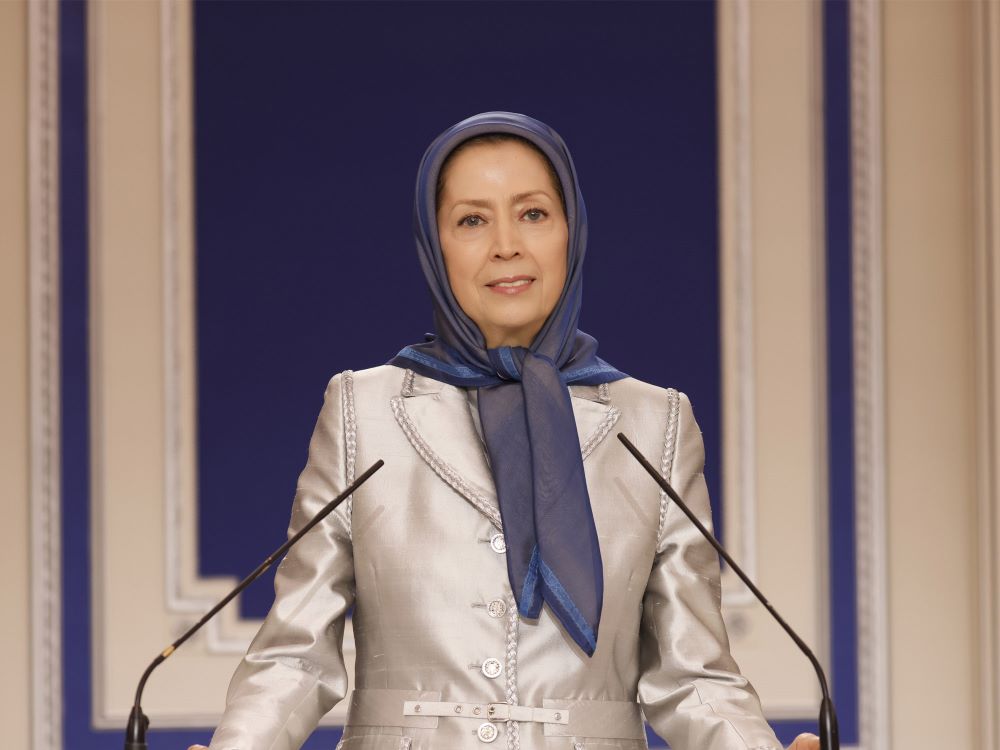
The Iranian Resistance’s Effort to Reclaim Human Rights
Professor Kazem Rajavi, the renowned human rights champion who was assassinated in Geneva by the regime’s terrorists, once stated, “We are writing the history of human rights with our own blood.”
Indeed, the pursuit of human rights is at the heart of our ideals. The society we envision is one built upon the restoration and protection of human rights.
For years, our resistance has championed the abolition of the death penalty. We stand united for an Iran free from torture, repression, and all forms of injustice and inequality.
We advocate for a democratic republic founded on the separation of religion and state, with an independent judiciary adhering to principles such as the presumption of innocence, the right to defense, the right to a public trial, the complete independence of judges, and the abolition of the mullahs’ Sharia laws.
Our path is one of tolerance and humanity. Our resolve, shared by the women and youth of the nation, is to rise up and fight for freedom and liberation until the end.

